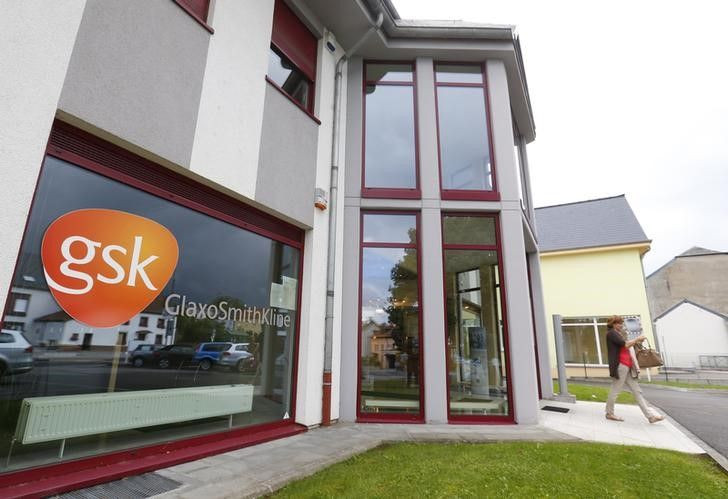GSK May Get EU Green Light For New Biotech Asthma Drug This Week

ONDON (Reuters) - GlaxoSmithKline may get a green light from European regulators as early as this week for a new biotech medicine to treat severe asthma, boosting prospects for its struggling respiratory business.
A recommendation from the European Medicines Agency (EMA) would confirm the British drugmaker's lead in a race to develop an injectable drug for patients with severe asthma who don't respond well to traditional inhalers.
GSK's Nucala, or mepolizumab, is being assessed by experts at a four-day meeting that concludes on Thursday, according to an EMA agenda. (http://www.ema.europa.eu/docs/en_GB/document_library/Agenda/2015/09/WC500193944.pdf)
The U.S. Food and Drug Administration is due to give its decision on the drug by Nov. 4.
Despite treatment advances in recent decades, asthma is still not well controlled in a significant minority of patients, creating what analysts believe is a multibillion-dollar opportunity for the new injections.
Rivals in the field include AstraZeneca, Roche, Teva and Sanofi - but Eric Dube, head of GSK's respiratory business, believes his company is around one year ahead of rivals.
"Clearly there is a first-mover advantage here," he told Reuters. "However, we don't have that much time to establish Nucala as the leader in severe asthma."
Significantly, the new drugs offer a more personalized approach to asthma care, with patients undergoing so-called "biomarker" blood tests to check if they are likely to respond.
This targeted approach is gaining traction in many medical fields, most notably cancer, and drugmakers hope it will be attractive to governments and insurers, since it means the drugs will only go to patients who are likely to benefit.
Biotech medicines like Nucala will not be cheap, since they are made from complex antibodies, though GSK is not giving any indication on cost before launch.
GSK has been the leader in asthma since launching its Ventolin inhaler in 1969 but its core respiratory business is currently suffering, due to declining sales of top-seller Advair, while a successor inhaler, Breo, also had a recent setback.
Nonetheless, Dube believes GSK will maintain its market-leading position in a global respiratory market that is growing by a modest 2 percent a year, although the shape of the business will be different in future.
By 2020, GSK expects 90 percent of its respiratory sales to come from nine products, including Nucala, up from just four drugs this year.
(Editing by Elaine Hardcastle)



























